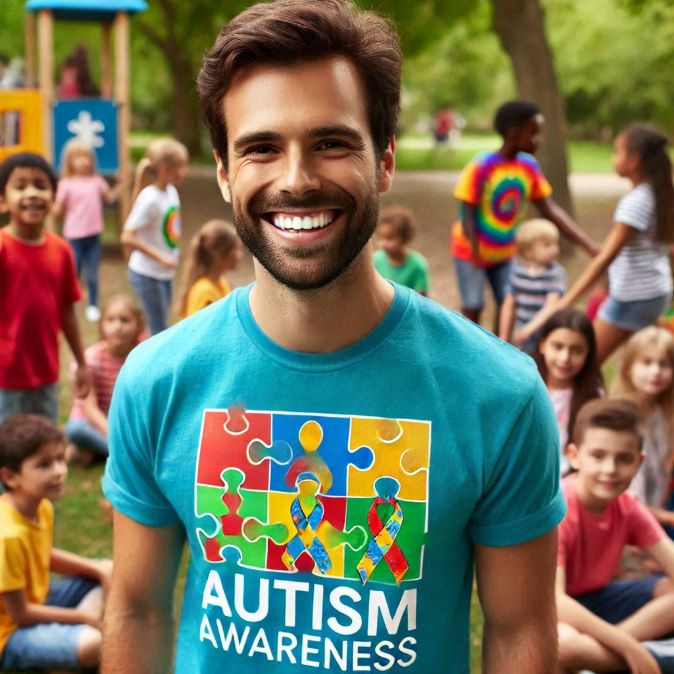
Advocacy plays a crucial role in ensuring individuals with autism receive the support and opportunities they deserve. Statistics show that autism spectrum disorder (ASD) affects 1 in 36 children, yet societal stereotypes and misconceptions about autism often create barriers to acceptance. Male role models and advocates are breaking down these barriers, showing that men can be both compassionate and vocal champions for inclusivity.
A significant aspect of advocacy involves addressing gender stereotypes. Many perceive caregiving and advocacy as predominantly female roles, leaving a gap in male representation. Resources like Themalecoachmalepsychology challenge these stereotypes, encouraging men to step into advocacy roles with confidence. By reshaping societal norms, male advocates not only create a more inclusive environment for individuals with autism but also redefine masculinity.
The Importance of Male Advocates in Autism Support
Male advocates bring a unique perspective to autism support. Their involvement helps dismantle outdated beliefs about gender roles and promotes diversity in advocacy efforts. When fathers, brothers, mentors, and male friends actively support individuals with autism, they demonstrate the importance of inclusivity to their communities.
Children and young adults with autism often benefit greatly from having male role models. These figures provide examples of strength combined with empathy, encouraging individuals with autism to embrace their own identities confidently. Male advocates also help normalize conversations about autism, reducing stigma and fostering acceptance in social, educational, and professional settings.
Breaking Stereotypes to Foster Inclusivity
Traditional notions of masculinity have long discouraged men from openly expressing care and compassion. Advocacy in the autism community provides an opportunity to challenge these norms. By stepping into visible roles, male advocates show that strength lies in empathy and action.
This change has ripple effects. When men engage in advocacy, they inspire other men to do the same. They contribute to a culture where supporting individuals with autism is a shared responsibility. Male advocates also empower women already active in the field, creating a collaborative effort that benefits everyone involved.
Amplifying the Voices of Men in Advocacy
To ensure male advocates have a meaningful impact, their voices must be amplified. Education and awareness campaigns that highlight male perspectives on autism advocacy are crucial. Public figures, educators, and mentors who openly discuss their experiences can inspire others to join the cause.
Community programs and mentorship initiatives can also provide a platform for male advocates. These programs connect men with families and individuals affected by autism, offering opportunities to make a difference at a personal level. Such connections build understanding, trust, and lasting change.
Practical Ways Men Can Advocate
Advocacy doesn’t always require large gestures. Small, consistent actions can create significant impact. Here are some ways men can contribute:
- Educate Yourself and Others: Understand the challenges faced by individuals with autism and their families. Share this knowledge with your network.
- Be Present: Show support by attending autism awareness events, workshops, and fundraisers.
- Mentor and Support: Offer mentorship to individuals with autism or provide emotional support to families navigating the spectrum.
- Advocate for Policy Changes: Support initiatives that improve access to education, healthcare, and employment for individuals with autism.
- Challenge Stereotypes: Use your voice to dismantle misconceptions about autism and advocate for inclusivity in your community.
The Role of Media and Storytelling
Stories of male advocates making a difference can inspire others to take action. Highlighting their journeys through articles, podcasts, and documentaries brings visibility to their efforts and normalizes male involvement in advocacy. Social media platforms also serve as powerful tools for sharing personal stories and fostering a sense of community.
READ ALSO: Transitioning Autistic Children to Adulthood
Building a More Inclusive Future
Advocacy is a shared responsibility, and male role models play a crucial part in driving change. By stepping into advocacy roles, men contribute to a more inclusive world where individuals with autism are valued and supported. Breaking down gender stereotypes not only benefits the autism community but also enriches society as a whole.
As we move forward, it’s essential to recognize and celebrate the efforts of male advocates. Their voices bring balance to the conversation, ensuring that support for individuals with autism is diverse, equitable, and impactful.